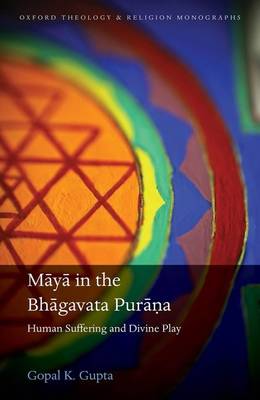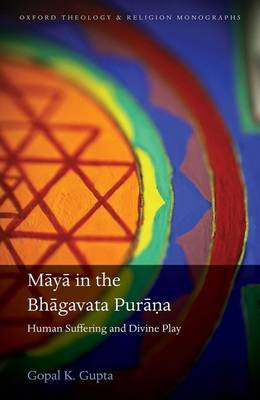
Je cadeautjes zeker op tijd in huis hebben voor de feestdagen? Kom langs in onze winkels en vind het perfecte geschenk!
- Afhalen na 1 uur in een winkel met voorraad
- Gratis thuislevering in België vanaf € 30
- Ruim aanbod met 7 miljoen producten
Je cadeautjes zeker op tijd in huis hebben voor de feestdagen? Kom langs in onze winkels en vind het perfecte geschenk!
- Afhalen na 1 uur in een winkel met voorraad
- Gratis thuislevering in België vanaf € 30
- Ruim aanbod met 7 miljoen producten
Zoeken
Omschrijving
The idea of Māyā pervades Indian philosophy. It is enigmatic, multivalent, and foundational, with its oldest referents found in the Rig Veda. This book explores Māyā's rich conceptual history, and then focuses on the highly developed theology of Māyā found in the Sanskrit Bhāgavata Purāṇa, one of the most important Hindu sacred texts. Gopal K. Gupta examines Māyā's role in the Bhāgavata's narratives, paying special attention to its relationship with other key concepts in the text, such as human suffering (duḥkha), devotion (bhakti), and divine play (līlā). In the Bhāgavata, Māyā is often identified as the divine feminine, and has a far-reaching influence. For example, Māyā is both the world and the means by which God creates the world, as well as the facilitator of God's play, paradoxically revealing him to his devotees by concealing his majesty. While Vedānta philosophy typically sees Māyā as a negative force, the Bhāgavata affirms that Māyā also has a positive role, as Māyā is ultimately meant to draw living beings toward Krishna and intensify their devotion to him.
Specificaties
Betrokkenen
- Auteur(s):
- Uitgeverij:
Inhoud
- Aantal bladzijden:
- 288
- Taal:
- Engels
- Reeks:
Eigenschappen
- Productcode (EAN):
- 9780198856993
- Verschijningsdatum:
- 22/12/2020
- Uitvoering:
- Hardcover
- Formaat:
- Genaaid
- Afmetingen:
- 155 mm x 236 mm
- Gewicht:
- 589 g

Alleen bij Standaard Boekhandel
+ 418 punten op je klantenkaart van Standaard Boekhandel
Beoordelingen
We publiceren alleen reviews die voldoen aan de voorwaarden voor reviews. Bekijk onze voorwaarden voor reviews.









